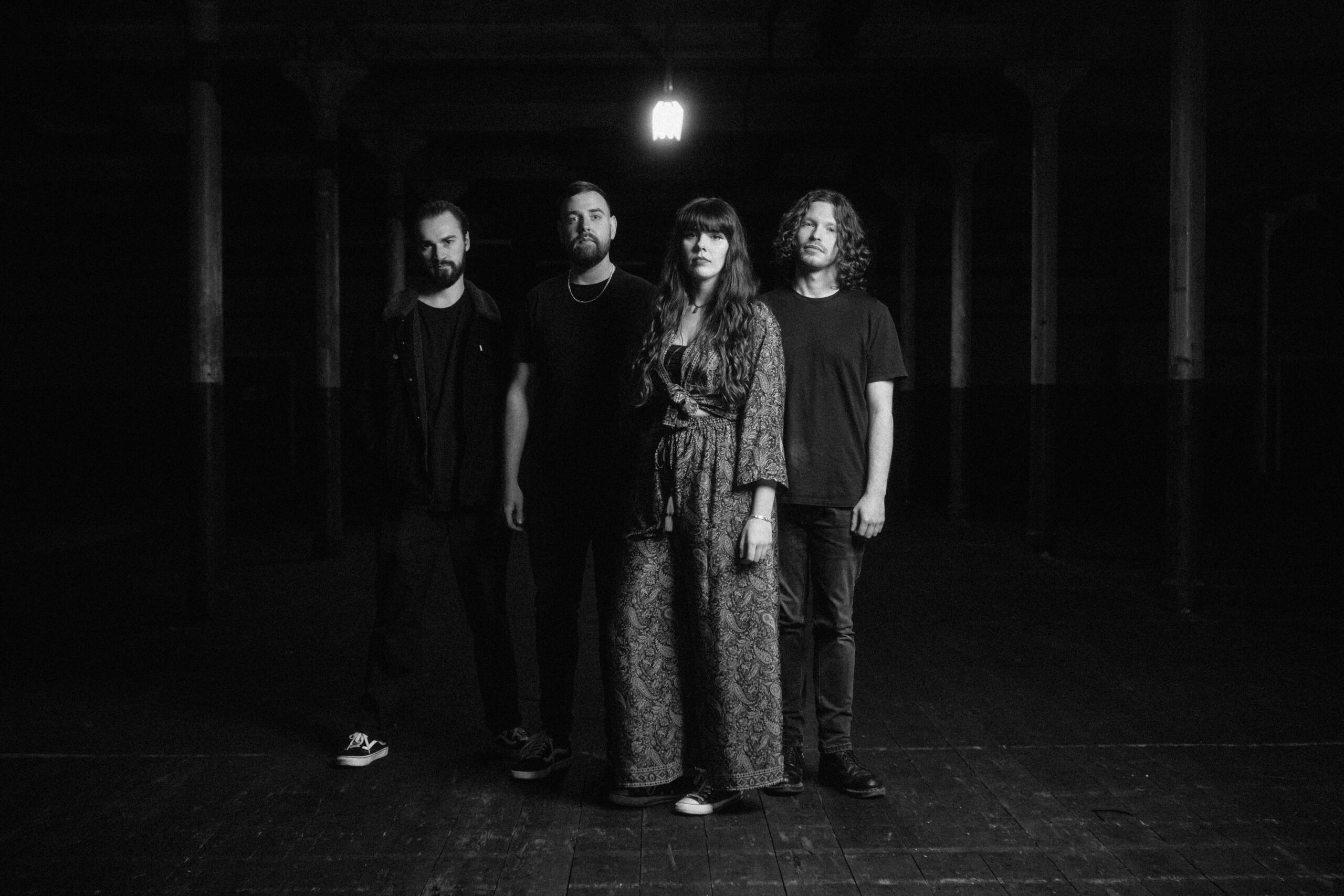
Giant Walker
September 23, 2024| Will Marshall |FEATURES

Silhouettes: Track by Track with Giant Walker
Channelling prog, bluesy riffs and a towering vocal performance, Giant Walker's Silhouettes is an incredible record.
Newcastle’s Giant Walker have just unveiled their second album, and first for new label home Church Road Records. Billed as for fans of bands from Soundgarden to the much-missed Black Peaks, it’s a big sell but one they live up to with ease. Silhouettes is triumphant, riff-filled celebration of prog-leaning, bluesy riffs from guitarist Jamie Southern and further fuelled by their powerhouse vocalist Steff Fish. The two of them have kindly broken down the album for us, track by track.
Time To Waste
Steff: This riff is one of my favourites on the whole album. Despite it being one of our latest singles, we’ve been playing it live since last year and it’s probably going to be a mainstay in the live set for a while because it just grooves so hard and we love playing it together live. Jamie came up with the initial idea for the lyrics in the chorus, “On and on and on” and then the rest sort of fell into place around that.
Make Me
Steff: This song is about witnessing someone you care about making terrible decisions and the reality of your own helplessness knowing that nothing you say will influence their judgement, as they can’t or won’t acknowledge that their actions are perpetuating the problem. So, it becomes an endless cycle of delusion and bitterness.
Silhouettes
Steff: Thematically, Silhouettes explores feelings of being constantly beaten down to the point where you want to bring everyone down with you – almost like life is out to trip you up at every corner and then smiling when you fall. I guess that’s really epitomised by the lyric, “I could dig a nice hole in the ground, but then I guess I can’t watch the world drown.”
Use On You
Steff: Use On You is probably my favourite song from the whole album. We went to see Queens of the Stone Age at Dreamland in Margate just before this was written, and that definitely inspired where this song ended up. The concept being that you’re stuck in a situation you need to get out of – dreaming of the things you should say and the things you should do – but in the end, you do nothing, so you’re just left holding on and telling yourself it could probably be worse.
Halcion
Jamie: The initial idea for Halcion emerged from a drum groove, although it evolved through several different iterations before culminating into its final form. Sonically, it’s quite dark and angular, and so, when it came to crafting the lyrics, the aim was to encapsulate that feeling of uneasiness that came from the music and weave it into a story. It just so happened that amidst writing the song, we ended up watching a documentary about a serial killer, which felt very fitting to the music – this ultimately shaped the lyrical direction Halcion took. [Note – ‘Halcion’ is the brand name of Triazolam, which is a sedative to help with insomnia.]
Related: Giant Walker – Silhouettes | Album Review
Eraser, Obscurer
Jamie: Eraser, Obscurer is one of the more expansive tracks on the album and definitely expresses some of our more progressive influences. The broad dynamic range of the song covers everything from angelic and captivating melodies, to slamming riffs and harmonically rich chord sequences. The song describes the ‘holier than thou’ attitude that many people seem to possess; quick to criticise and demonise people who’ve made mistakes, whilst disregarding their own imperfect traits.
Round & Round We Go
Jamie: This was one of the first ideas we came up with for the new album and subsequently, one of the songs that changed the most during the writing process, as we had a lot of time to sit with the parts. We made changes to the overall tempo, as well as lyrical phrases which resulted in a song that really allowed the melodies to breathe. Lyrically, Round & Round We Go summarises the karma you hope will come around to the people who most deserve it.
So You Say
Jamie: This was the first song we finished for the album and, ironically, probably the most contrasting sonically to ‘All In Good Time’. I was listening to a lot of Sting at the time, which seemed to subconsciously worm its way into the harmony. The song explores themes of someone gradually losing purpose and direction to the point where you can’t put your finger on when or why you’ve lost it.
What It’s Worth
Jamie: The initial idea from What It’s Worth came from Alex sending over a drum groove. As I was hearing the recording he sent repeat from a different place, I then chopped it up and sent it back to him to re-record, which essentially became the intro and verse feel. The song both sonically and lyrically, describes the thoughts and feelings you might experience upon hearing an air raid siren. Knowing that you wont survive and that the only thing you can do at that moment is to take in your surroundings one last time.



